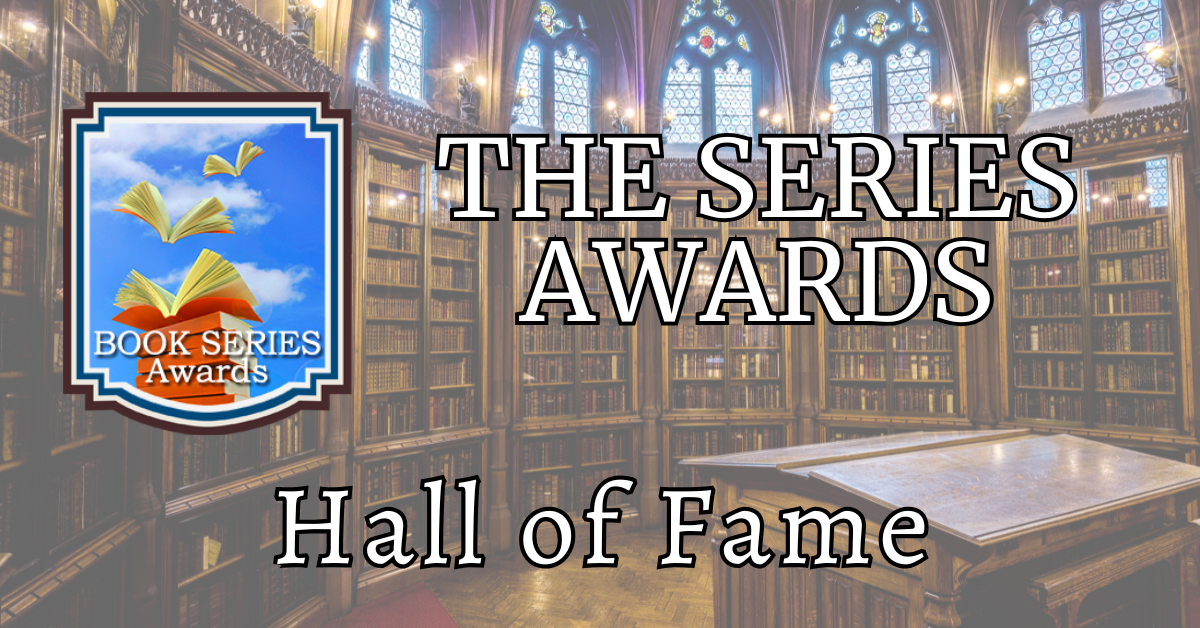|
Listen to or download this article:
|

Looking for a sense of History?

Look no further! The Chaucer Awards are here to bring stories from anytime before 1750.
You have until September 30th to submit your story and enter the 2024 CIBAs!
Named for Geoffrey Chaucer, author of the Canterbury Tales (and Name giver of a certain rooster named Chanticleer), This Division was our first Historical Fiction category.
Not much belonging to the author in question still survives. Although in 2023, a document in the British National Archive was determined to be written in his own hand. The document dates from Chaucer’s 12-year stint as the controller of the London Wool Quay, and is a note asking King Richard II for time off of work. Read more about that in this article from the Guardian
The note, written by Geoffrey Chaucer, spelled Geffray Chaucer in the text, rediscovered in the British National Archives
The Most famous thing associated with him though, has to be Poets Corner of Westminster Abbey. The corner dedicates memorials to some of the best of British writers. Poets corner is centered around the Tomb of Geoffrey Chaucer himself, which was erected in 1559, as his actual burial is known to be somewhere in the area, but is unmarked. Writers such as Charles Dickens, Rudyard Kipling, Alfred Lord Tennyson, and more are buried or have memorials surrounding Chaucer’s.

In this years Chaucer Award posts, we are also highlighting some of the often overlooked female writers of the past. This time, Christine De Pisan. Writing in the early 1400s, she was rather prolific in her work. Poetry, Novels, Biographies and more, including the only French-language work about Joan of Arc written in her lifetime. Christine is the first known women to actually make a living on her own writing.

Christine De Pisan from Harley MS 4431, held in the British Library.
The fact she was able to support herself and her children off of her writing in this era is remarkable. Her most well known work, The Book of the City of Ladies and its sequel The Treasure of the City of Ladies, written in about 1405, collecting biblical, mythological and historical female figures together, and using them as the ‘building blocks’ for a theoretical idealized city as a commentary on the world she lived in. Her book argues that women actually had a valued place and meaning in society and should be educated the same as men were. Her biography of Joan of Arc in 1429, is her last known piece of writing, as she disappears from written history after that.
And with that, Lets Take a look back in more recent history at the Grand Prize Winners of the Chaucer Award!

The Merchant From Sepharad
By James Hutson-Wiley
Joshua Ibn Elazar, the eager son of a Jewish merchant, travels to al-Andalus (the Iberian Peninsula under Muslim rule) to prove himself in his father’s business. But he finds an unwelcoming, degrading society waiting for him, and begins a journey of misfortune and anger in James Hutson-Wiley’s historical fiction novel, The Merchant from Sepharad.
Shortly after arriving in the city of Lishbunah, al-Andalus, Joshua is tricked out of the gold for his living expenses. Worse yet, he learns that Jews in Lishbunah suffer under oppressive laws, holding far less status than Muslim citizens. He can only find help in Lishbuna’s Jewish community, meeting Rabbi Hiyya al-Daudi and his son Yaish, who house and feed him.
They tell him that his father’s colleague, Essua, who was to help Joshua manage a shipment of flax and sugar, has been arrested. Though Essua is eventually released, Joshua fails to secure storage for his goods, as the makhzan (warehouse) he rented is given to a Muslim merchant instead. In his fury at the city’s prejudice, he sets fire to the makhzan, and is forced to flee.

Daughter of Hades
By Mack Little
Mack Little’s historical fiction novel Daughter of Hades explores the lives of slaves during the age of pirates.
Little’s research shines in her thoughtful presentation of the Caribbean islands, the escaped slaves who found freedom amongst them, the lives of buccaneers and maroons, and their daring and dangerous exploits.
On the first page, Little introduces us to Geraldine, or “Dinny”, running for her life from her owner, Owen Craig, who has just raped her.
Dinny’s father had arranged for her to be removed from the plantation before Craig molested her, but he’d miscalculated Craig’s lust. Dinny is rescued by her twin brother, Jimmie, and Leixiang, and taken to the Hades, a pirate ship captained by the buccaneer Duff.

Too Soon The Night
By James Conroyd Martin
Too Soon the Night by James Conroyd Martin shows the thrilling heights to which Empress Theodora rose and the crushing depths to which she fell, in the latter half of her life. This story picks up from Fortune’s Child, the first volume of this epic duology.
This half of Theodora’s incredible journey opens at its close – as she succumbs to the cancer that drove her to dictate the record of her life. She left the task of recording her meteoric rise from actress to empress in the hands of the scribe and historian Stephen, even though she imprisoned him for several years out of fear that he would reveal her greatest secrets.

Bird in a Snare
By N.L. Holmes
Politics is a deadly game in the days of Kings and their competing 14th-century B.C. Egyptian factions. Official diplomat, Lord Hani, is on a royal assignment when he discovers even the king’s motives are suspect. Hani begins to fear for the welfare of his family and himself, as he gets a sinking feeling that the hunter has become the hunted. He’s the live bait, the Bird In A Snare.
Can Lord Hani find out who is responsible for the mysterious assassinations and the shifting armies’ alliances before becoming the one they target next?

Fortunes Child
By James Conroyd Martin
2019 Overall Grand Prize Winner
James Conroyd Martin brings to life one woman we should all know better in his multi-award-winning, epic novel, Fortune’s Child: A Novel of Empress Theodora.
Like Cleopatra, Empress Theodora was a legend in her own time. And also, like Queen Cleopatra before her, Empress Theodora’s life and accomplishments were distorted and maligned by the male historians of her own time. Even after death, men who couldn’t bear or couldn’t believe that a woman, particularly a woman of the lower classes as Theodora was, could possibly have accomplished the things she did or wield the power she had.
Fortune’s Child, the first book of a projected duology, Theodora, near death, determines to leave behind an accurate chronicle of her life and work. She’s desperate to get a step ahead of the official biography already being written by a man who hates her, everything she came from, and everything she stands for.

The Serpent and The Eagle
By Edward Rickford
In The Serpent and the Eagle, Edward Rickford details Hernan Cortes’ 1519 expedition to explore and secure the interior of Mexico for colonization, fleshing out known facts with the human factor—it is, to the typical depiction of Cortes’ exploration of the Yucatán peninsula, what a chorus is to a solo or a tulip to a bulb. Primarily narrated by individuals who were actual members, or may have been members, of this expedition, Rickford has crafted a fascinating tale of intrigue, love, lust, greed—essentially all seven of the deadly sins—within two diametrically opposed political and cultural systems.
Now that you’re set on your next reads, what are you waiting for? The only way to join this amazing list of Chaucer Winners is to submit today!

Those who submit and advance will have the chance to win the Overall Grand Prize of the CIBAs and $1000!

Are you a Chanticleer Author who has some good news to share? Let us know! We’re always looking for a reason to crow about Chanticleerians! Reach out with your news to info@ChantiReviews.com










Leave A Comment